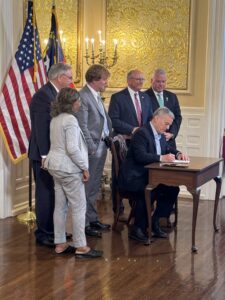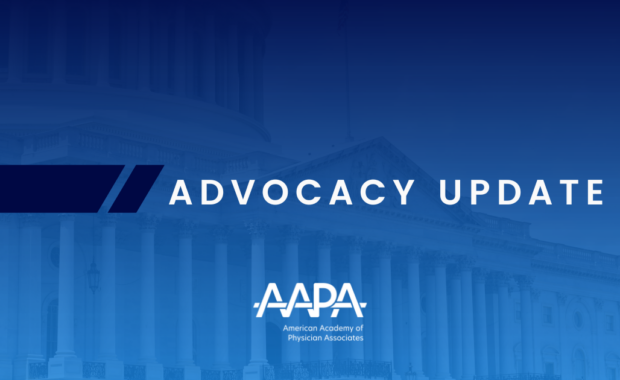North Carolina Enacts Law Removing Supervision Requirements for Experienced PAs
In addition to removing supervision requirements, the law also approved the PA Licensure Compact, which makes North Carolina the 19th state to join.
July 1, 2025

North Carolina, the birthplace of the PA profession, officially became the largest and most recent state to remove supervision requirements for experienced PAs. On July 1, North Carolina Gov. Josh Stein signed House Bill 67 into a law, a sweeping healthcare workforce reform bill that includes two key PA-related provisions that will improve patients’ abilities to access timely healthcare: the removal of outdated supervisory requirements for experienced PAs practicing in team-based settings and the state’s entry into the PA Licensure Compact.
“Today marks the start of the 2025-26 AAPA leadership year, and it is thrilling to also mark today as a history-making day for PAs as we celebrate a landmark legislative victory in North Carolina – the state where our profession was founded. With the enactment of this law, more than 9,000 PAs in North Carolina will be empowered to improve healthcare in the state. PAs are essential to expanding patient access to high-quality care — this was true in 1967 when the first class of PAs graduated from Duke University Medical Center, and it is true today,” said AAPA President and Chair of the Board Todd Pickard, DMSc, PA-C, DFAAPA, FASCO.
Christopher Norman, president of the North Carolina Academy of Physician Assistants (NCAPA), said the passage of this legislation is a significant step for patients and PAs across North Carolina.
“As our healthcare system evolves, it is essential that our policy reflects how healthcare is delivered in 2025,” Norman said. “These provisions strengthen our PA workforce – and improves access and outcomes for the patients and communities we serve.”
PA Team-Based Practice Act
The Team-Based Practice Act eliminates the requirement for experienced PAs with at least 4,000 clinical hours of experience to have a specific relationship with a physician when working in a team-based setting. These changes provide critical flexibility to healthcare teams to be able to pivot and address healthcare challenges where they are needed most. It also ensures that PAs can practice to the fullest extent of their training, education, and experience. It also establishes a supervised career entry interval and training hour requirements for those changing specialties.
PA Compact

The PA licensure compact is an interstate occupational licensure compact for PAs. It facilitates multistate practice for PAs while greatly improving health care access for patients. PAs will be able to provide medical care to patients in other compact states, potentially providing underserved communities with more provider choices for their healthcare. The PA compact will not affect scope of practice, as PAs using the compact to practice must abide by the laws and regulations of the state which they are practicing in at the time.
N.C. State Senator Mark Hollo, a retired PA and member of NCAPA, led the effort behind the bill’s passage. “As someone who served as a PA, I understand the importance of modern, efficient legislation that reflects the way PAs deliver care. HB 67 is an important step forward. By joining the PA Licensure Compact and removing outdated supervision mandates, PAs will be better equipped to provide medical care to our patients.”
You May Also Like
PA Licensure Compact: Connecticut Becomes 18th State to Join
Momentum Builds: New Hampshire Becomes Third State to Enact PA Title Change
Advocacy in Action: Tackling Tumultuous Times



